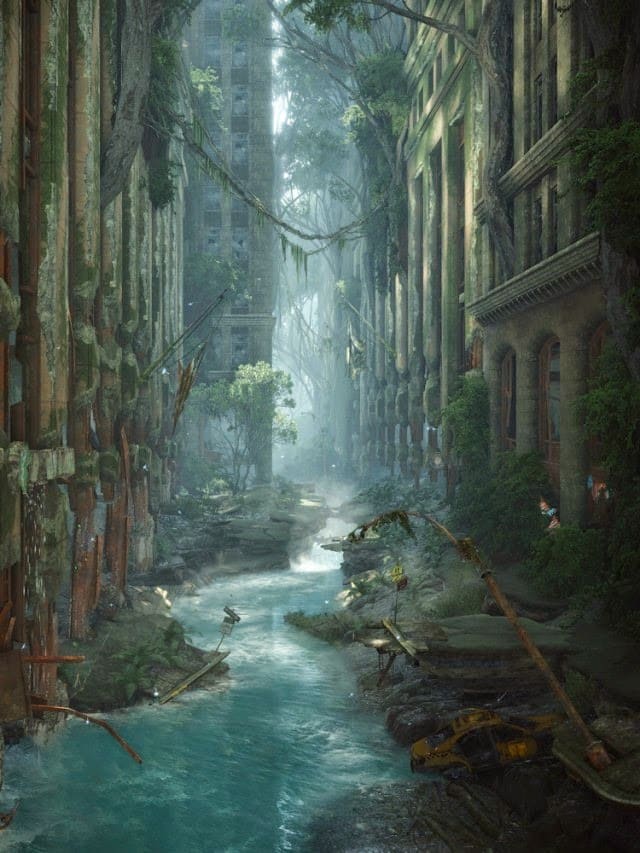As you’re probably well aware, ever since Crysis was first released in 2007, it has been the benchmark for graphics card performance and beautiful real-time visuals. To this day, “does it run Crysis?” is still a pretty common meme in computer hardware circles. Crysis 3 isn’t quite as crippling as the first game — it runs at reasonable frame rates on most mid-to-high-end graphics cards — but it’s still one of the best ways to stress a graphics card, and it’s still one of most beautiful games on the market.
Crysis 3 at 8K, cityscape
Crysis 3 at 8K, cityscape. For full-size images, see the Flickr link below. To get Crysis 3 up to 8K, K-putt had to use a program called OnTheFly that produces a hacked version of the main Crysis executable file. This new EXE enables lots of new functionality through the in-game console — cvars, in game engine speak — allowing him to pump the resolution up, change the draw distance, and make other changes on the fly. He also used SweetFX, a program that allows you to customize a game engine’s shader code, to tweak the output’s colors and contrast. The end result still looks a lot like Crysis 3, just a little more contrasty. It’s also worth pointing out that K-putt didn’t actually get up to 8K (7680×4320), instead settling for an ultra-wide-screen 8000×3333 and portrait 3750×5000 shots. At 8000×3333, each frame consists of 26.6 million pixels. By comparison, a 1920×1080 frame is a measly 2 million pixels. The full-res screenshots uploaded by K-putt clock in at 24 megabytes. In short, rendering Crysis 3 at 8000×3333 at a playable frame rate requires 13 times the processing power of your high-end gaming rig. We’re not talking about a brace of GTX Titans here — we’re probably talking about 10 GTX Titans, all working in perfect synchrony, to deliver a decent frame rate. (In case you’re wondering, true 8K is 33 million pixels per frame, or 16.5 times more than 1080p).
Crysis at 8K, external landscape
Crysis at 8K, external landscape. See the Flickr link below for the full-res download. This is why, on K-putt’s computer — a quad-core Haswell Xeon 1230v3 with an overclocked Radeon 7950 — he only gets around 2 frames per second. Speaking on Reddit, he says that he played at a normal resolution to navigate to the perfect screenshot location — and only then did he change to 8K resolution before taking the shot. There is a gallery of full-resolution screenshots on K-putt’s Flickr – and incidentally, he’s also done some similar work with games like Dark Souls 2 and Tomb Raider. Because of the exponential scaling of display resolution, and the diminishing gains with each new generation of GPU, it will probably be a decade or longer before 8K gaming becomes mainstream reality. Even 4K (3840×2160), which clocks in at around 8 million pixels per frame (four times 1080p), is still a few years away from single-GPU reality. But hey, considering 4K monitors and TVs are just starting to hit sub-$1,000 price points, and 8K displays are still one-of-a-kind prototypes, I don’t think there’s any real rush. Oh, and let’s not forget that consoles won’t support 4K until at least the next generation (probably 5+ years away), and PC games aren’t likely to adopt greater-than-1080p resolutions much before consoles.


